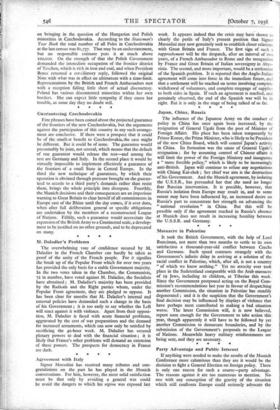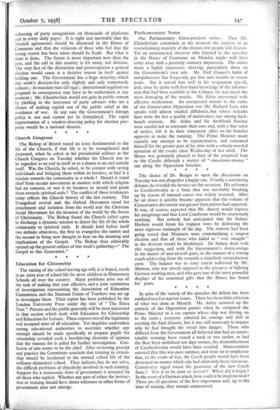Party Advantage and Public Interest If anything were needed to
make the results of the Munich Conference more calamitous than they are it would be the decision to fight a General Election on foreign policy. There is only one reason for such a course—party advantage. The reasons against it are too numerous to mention. No one with any conception of the gravity of the situation which still confronts Europe could seriously advocate the unloosing of party antagonisms on thousands of platforms and in every daily paper. It is right and inevitable that the Munich agreements should be discussed in the House of Commons and that the criticism of those who feel that the wrong course has been taken should be frank. But what is done is done. The future is more important now than the past, and the call in this country is for unity, not division. The very fact of the distraction and preoccupation a general election would cause is a decisive reason in itself against holding one. The Government has a huge majority, which this week's division-list only slightly and only temporarily reduces ; its mandate runs till 194o ; international negotiations pregnant sin consequence may have to be undertaken at any moment ; Mr. Chamberlain would not gain in public esteem by yielding to the insistence of party advisers who see a chance of making capital out of the public relief at the avoidance of war. In any case the Government's foreign policy is not and cannot yet be formulated. The rapid improvisation of a window-dressing policy for election pur- poses would be a national disaster.
* * * *















































 Previous page
Previous page